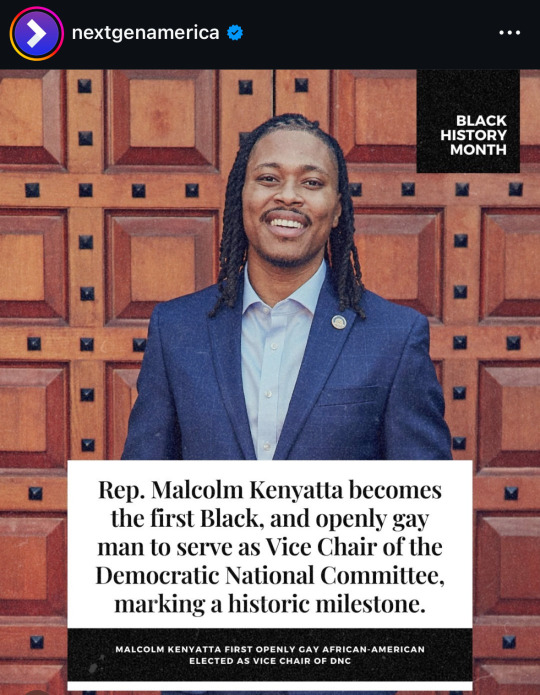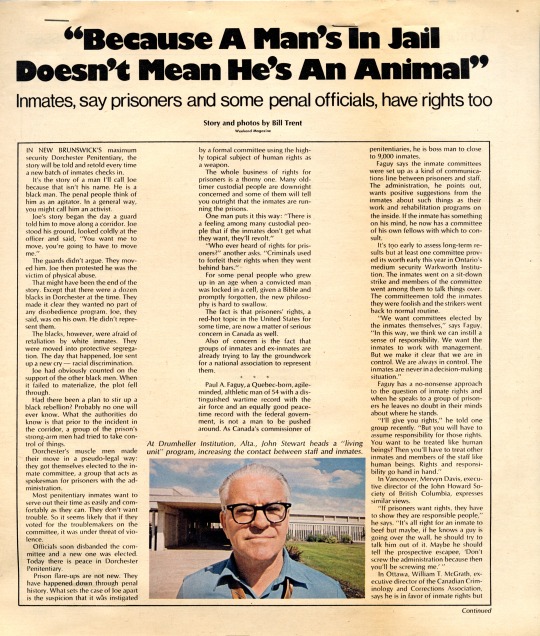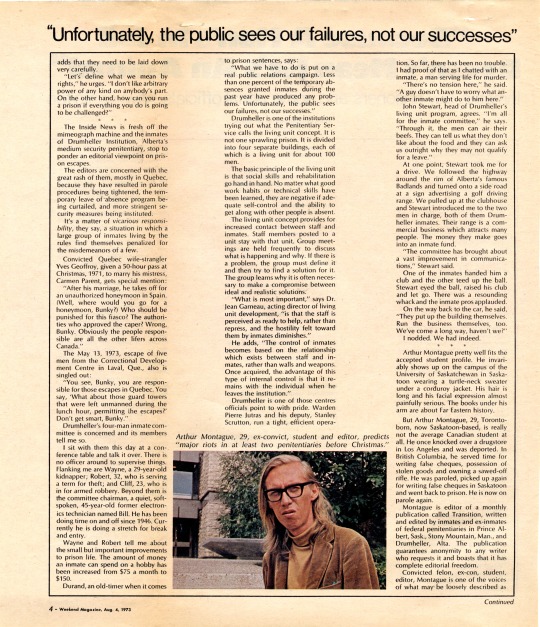#Democracy Committee
Explore tagged Tumblr posts
Text
अनुराग ठाकुर का ग्लोबल सम्मान: ताशकंद में IPU की डेमोक्रेसी कमेटी में निर्विरोध चुने गए
Himachal News: पूर्व केंद्रीय मंत्री और हमीरपुर सांसद अनुराग सिंह ठाकुर को ताशकंद में एक बड़ा सम्मान मिला है। इंटर पार्लियामेंट्री यूनियन (IPU) की असेंबली में उन्हें ब्यूरो ऑफ स्टैंडिंग कमेटी ��ा सदस्य चुना गया। यह कमेटी लोकतंत्र और मानवाधिकारों पर काम करती है, जिसमें उनकी भूमिका अहम होगी। चार देशों ने इस सीट के लिए दावा किया था, पर अनुराग निर्विरोध चुने गए। सभापति ने उनका नाम प्रस्तावित किया,…
#Anurag Thakur#Democracy Committee#Global Honor#Hamirpur MP#Harivansh#human rights#India Parliament#Inter-Parliamentary Union#IPU Tashkent#Om Birla
0 notes
Text

#malcolm kenyatta#democratic national committee#politics#political#us politics#news#democratic party#democratic#democrat#democracy#democrats#america#american#us news#american politics#elon musk#philadelphia#pennsylvania#history
619 notes
·
View notes
Text
Scientific American endorses Harris

TONIGHT (October 23) at 7PM, I'll be in DECATUR, GEORGIA, presenting my novel THE BEZZLE at EAGLE EYE BOOKS.

If Trump's norm-breaking is a threat to democracy (and it is), what should Democrats do? Will breaking norms to defeat norms only accelerate the collapse of norms, or do we fight fire with fire, breaking norms to resist the slide into tyranny?
Writing for The American Prospect, Rick Perlstein writes how "every time the forces of democracy broke a reactionary deadlock, they did it by breaking some norm that stood in the way":
https://prospect.org/politics/2024-10-23-science-is-political/
Take the Thirteenth Amendment, which abolished slavery, and the Reconstruction period that followed it. As Jefferson Cowie discusses, the 13th only passed because the slave states were excluded from its ratification, and even then, it barely squeaked over the line. The Congress that passed reconstruction laws that "radically reconstructed [slave states] via military subjugation" first ejected all the representatives of those states:
https://newrepublic.com/article/182383/defend-liberalism-lets-fight-democracy-first
The New Deal only exists because FDR was on the verge of packing the Supreme Court, and, under this threat, SCOTUS stopped ruling against FDR's plans:
https://pluralistic.net/2020/09/20/judicial-equilibria/#pack-the-court
The passage of progressive laws – "the Civil Rights Act, the Voting Rights Act, Medicare, and Medicaid" – are all thanks to JFK's gambit of packing the House Rules Committee, ending the obstructionist GOP members' use of the committee to kill anything that would protect or expand America's already fragile social safety net.
As Perlstein writes, "A willingness to judiciously break norms in a civic emergency can be a sign of a healthy and valorous democratic resistance."
And yet…the Democratic establishment remains violently allergic to norm-breaking. Perlstein recalls the 2018 book How Democracies Die, much beloved of party elites and Obama himself, which argued that norms are the bedrock of democracy, and so the pro-democratic forces undermine their own causes when they fight reactionary norm-breaking with their own.
The tactic of bringing a norm to a gun-fight has been a disaster for democracy. Trump wasn't the first norm-shattering Republican – think of GWB and his pals stealing the 2000 election, or Mitch McConnell stealing a Supreme Court seat for Gorsuch – but Trump's assault on norms is constant, brazen and unapologetic. Progressives need to do more than weep on the sidelines and demand that Republicans play fair.
The Democratic establishment's response is to toe every line, seeking to attract "moderate conservatives" who love institutions more than they love tax giveaways to billionaires. This is a very small constituency, nowhere near big enough to deliver the legislative majorities, let alone the White House. As Perlstein says, Obama very publicly rejected calls to be "too liberal" and tiptoed around anti-racist policy, in a bid to prevent a "racist backlash" (Obama discussed race in public less than any other president since the 1950s). This was a hopeless, ridiculous own-goal: Perlstein points out that even before Obama was inaugurated, there were more than 100 Facebook groups calling for his impeachment. The racist backlash was inevitable had nothing to do with Obama's policies. The racist backlash was driven by Obama's race.
Luckily, some institutions are getting over their discomfort with norm-breaking and standing up for democracy. Scientific American the 179 year-old bedrock of American scientific publication, has endorsed Harris for President, only the second such endorsement in its long history:
https://www.scientificamerican.com/article/vote-for-kamala-harris-to-support-science-health-and-the-environment/
Predictably, this has provoked howls of outrage from Republicans and a debate within the scientific community. Science is supposed to be apolitical, right?
Wrong. The conservative viewpoint, grounded in discomfort with ambiguity ("there are only two genders," etc) is antithetical to the scientific viewpoint. Remember the early stages of the covid pandemic, when science's understanding of the virus changed from moment to moment? Major, urgent recommendations (not masking, disinfecting groceries) were swiftly overturned. This is how science is supposed to work: a hypothesis can only be grounded in the evidence you have in hand, and as new evidence comes in that changes the picture, you should also change your mind.
Conservatives hated this. They claimed that scientists were "flip-flopping" and therefore "didn't know anything." Many concluded that the whole covid thing was a stitch-up, a bid to control us by keeping us off-balance with ever-changing advice and therefore afraid and vulnerable. This never ended: just look at all the weirdos in the comments of this video of my talk at last summer's Def Con who are absolutely freaking out about the fact that I wore a mask in an enclosed space with 5,000 people from all over the world in it:
https://www.youtube.com/watch?v=4EmstuO0Em8
This intolerance for following the evidence is a fixture in conservative science denialism. How many times have you heard your racist Facebook uncle grouse about how "scientists used to say the world was getting colder, now they say it's getting hotter, what the hell do they know?"
Perlstein points to other examples of this. For example, in the 1980s, conservatives insisted that the answer to the AIDS crisis was to "just stop having 'illicit sex,'" a prescription that was grounded in a denial of AIDS science, because scientists used to say that it was a gay disease, then they said you could get it from IV drug use, or tainted blood, or from straight sex. How could you trust scientists when they can't even make up their minds?
https://www.newspapers.com/image/379364219/?terms=babies&match=1
There certainly are conservative scientists. But the right has a "fundamentally therapeutic discourse…conservatism never fails, it is only failed." That puts science and conservativism in a very awkward dance with one another.
Sometimes, science wins. Continuing in his history of the AIDS crisis, Perlstein talks about the transformation of Reagan's Surgeon General, C Everett Koop. Koop was an arch-conservative's arch-conservative. He was a hard-right evangelical who had "once suggested homosexuals were sedulously recruiting boys into their cult to help them take over America once they came of voting age." He'd also called abortion "the slide to Auschwitz" – which was weird, because he'd also opined that the "Jews had it coming for refusing to accept Jesus Christ."
You'd expect Koop to have continued the Reagan administration's de facto AIDS policy ("queers deserve to die"), but that's not what happened. After considering the evidence, Koop mailed a leaflet to every home in the USA advocating for condom use.
Koop was already getting started. His harm-reduction advocacy made him a national hero, so Reagan couldn't fire him. A Reagan advisor named Gary Bauer teamed up with Dinesh D'Souza on a mission to get Koop back on track. They got him a new assignment: investigate the supposed psychological harms of abortion, which should be a slam-dunk for old Doc Auschwitz. Instead, Koop published official findings – from the Reagan White House – that there was no evidence for these harms, and which advised women with an AIDS diagnosis to consider abortion.
So sometimes, science can triumph over conservativism. But it's far more common for conservativism to trump science. The most common form of this is "eisegesis," where someone looks at a "pile of data in order to find confirmation in it of what they already 'know' to be true." Think of those anti-mask weirdos who cling to three studies that "prove" masks don't work. Or the climate deniers who have 350 studies "proving" climate change isn't real. Eisegesis proves ivermectin works, that vaccinations are linked to autism, and that water fluoridation is a Communist plot. So long as you confine yourself to considering evidence that confirms your beliefs, you can prove anything.
Respecting norms is a good rule of thumb, but it's a lousy rule. The politicization of science starts with the right's intolerance for ambiguity – not Scientific American's Harris endorsement.

Tor Books as just published two new, free LITTLE BROTHER stories: VIGILANT, about creepy surveillance in distance education; and SPILL, about oil pipelines and indigenous landback.


If you'd like an essay-formatted version of this post to read or share, here's a link to it on pluralistic.net, my surveillance-free, ad-free, tracker-free blog:
https://pluralistic.net/2024/10/22/eisegesis/#norm-breaking
#pluralistic#scientific american#science#sciam#rick perlstein#the reactionary mind#conservativism#norm-breaking#slavery#13th amendment#new deal#pack the court#house rules committee#how democracies die
143 notes
·
View notes
Text
youtube
I love this, it's fairly lighthearted and she has great energy throughout the pseudo-interview, vote blue and vote Harris this election.
#politics#the left#leftism#culture#progressive#us politics#kamala for president#kamala harris#vote kamala#kamala 2024#vote blue#please vote#us elections#american politics#election 2024#voting#vote harris#vote democrat#vote biden#democratic party#democracy#harris#national#election#president#kamala#democratic national committee#vote democratic#democratic national convention#harris walz 2024
116 notes
·
View notes
Text
What have I been saying about the Democrats?
Well, there it is, folks: They're slavers.
Straight from their party line, accidentally slipped from Rep. Jasmine Crockett, they intend for illegal immigrants to be slave labor. Off the books, unpaid or underpaid, untracked and undocumented, taxable slave labor. They intend for these people to live off the books so they won't appear on unemployment numbers. They intend to let these people get all the benefits of a citizen with none of the protections. They especially want them dependent on the state with the ability to vote for the lies the Democrats push about being "for the little guy."
Rep. Jasmine Crockett, D-Texas, a member of the far-left group of progressive lawmakers known as "the Squad," told congregants at a historically Black church that America needs robust immigration because "we done picking cotton." "So I had to go around the country and educate people about what immigrants do for this country, or the fact that we are a country of immigrants. The fact is ain’t none of y’all trying to go and farm right now," Crockett said, garnering a sheepish laugh from a few members of the audience. "OK, so I'm lying?" Crockett shot back, noticing the awkward silence. "You're not! You're not! We done picking cotton! We are. You can't pay us enough to find a plantation."
















#just azure things#just azzy things#wicked bitch of the midwest#what the hell is wrong with you#you got some wicked tastes girl#dankmark#dank#youtube#shit azzy says#shit azure says#democrats#democrazia#democratic party#democratic socialism#democratic national committee#democratic national convention#democratic norms#liberal#liberals#liberdadeliteraria#liberalism#liberal hypocrisy#liberal party#liberal democracy#social problems#socialism#socialista#socialist politics#marxism#neoliberalism
28 notes
·
View notes
Text
I keep trying to tie sun scarves so I don't get skin cancer like my grandma and I'm so jealous of our boys and their cravats. Why are they so beautiful?





They knew how to do things.
#I know it's not their most important contribution western democracy but I can still be awed and jealous#I do not look like this when I try to protect my neck & I'm only protecting it from the sun.#jk that was rude#sorry boys I love you#frev#french revolution#camille desmoulins#antoine saint just#robespierre#cravat#fashion#sun safety#but it's 1793 and you wanna look good for your committee
21 notes
·
View notes
Text
youtube
Josh Hawley Brings The Receipts To Call Out Sharp Uptick In Universal Injunctions Under Trump
At today's Senate Judiciary Committee hearing, Sen. Josh Hawley (R-MO) spoke to witnesses about the use of universal injunctions by judges.
#youtube#forbes#forbes breaking news#josh hawley#sen. josh hawley#donald trump#america#usa#committee#injunction#democrats#republicans#news#senate#democracy#justice#witnesses
13 notes
·
View notes
Text
Elon Musk gets BAD NEWS over Trump-linked scam PAC
youtube
Websites where you think you're registering to vote, but you're only giving all your personal information to a Musk funded Trump PAC.
#democracy watch#brian tyler cohen#elon musk#donald trump#musk & trump#voter registration#voter suppression#voter fraud#super pacs#pacs#political action committees#2024 presidential election#2024 elections#Youtube#democracy now
7 notes
·
View notes
Text



""Because A Man's In Jail Doesn't Mean He's An Animal"," Weekend Magazine. August 4, 1973. Page 3, 4, 6. ---- Inmates, say prisoners and some penal officials, have rights too ---- Story and photos by Bill Trent, Weekend Magazine --- IN NEW BRUNSWICK'S maximum security Dorchester Penitentiary, the story will be told and retold every time a new batch of inmates checks in.
It's the story of a man I'll call Joe because that isn't his name. He is a black man. The penal people think of him as an agitator. In a general way, you might call him an activist.
Joe's story began the day a guard told him to move along a corridor. Joe stood his ground, looked coldly at the officer and said, "You want me to move, you're going to have to move me."
The guards didn't argue. They moved him. Joe then protested he was the victim of physical abuse.
That might have been the end of the story. Except that there were a dozen blacks in Dorchester at the time. They made it clear they wanted no part of any disobedience program. Joe, they said, was on his own. He didn't represent them.
The blacks, however, were afraid of retaliation by white inmates. They were moved into protective segregation. The day that happened, Joe sent up a new cry racial discrimination.
Joe had obviously counted on the support of the other black men. When it failed to materialize, the plot fell through.
Had there been a plan to stir up a black rebellion? Probably no one will ever know. What the authorities do know is that prior to the incident in the corridor, a group of the prison's strong-arm men had tried to take control of things.
Dorchester's muscle men made their move in a pseudo-legal way: they got themselves elected to the inmate committee, a group that acts as spokesman for prisoners with the administration.
Most penitentiary inmates want to serve out their time as easily and comfortably as they can. They don't want trouble. So it seems likely that if they voted for the troublemakers on the committee, it was under threat of violence.
Officials soon disbanded the committee and a new one was elected. Today there is peace in Dorchester Penitentiary.
Prison flare-ups are not new. They have happened down through penal history. What sets the case of Joe apart is the suspicion that it was instigated by a formal committee using the highly topical subject of human rights as a weapon.
The whole business of rights for prisoners is a thorny one. Many old- timer custodial people are downright concerned and some of them will tell you outright that the inmates are running the prisons.
One man puts it this way: "There is a feeling among many custodial people that if the inmates don't get what they want, they'll revolt."
"Who ever heard of rights for prisoners?" another asks. "Criminals used to forfeit their rights when they went behind bars."
For some penal people who grew up in an age when a convicted man was locked in a cell, given a Bible and promptly forgotten, the new philosophy is hard to swallow.
The fact is that prisoners' rights, a red-hot topic in the United States for some time, are now a matter of serious concern in Canada as well.
Also of concern is the fact that groups of inmates and ex-inmates are already trying trying to lay the groundwork for a national association to them represent them.
///
Paul A. Faguy, a Quebec-born, agile-minded, athletic man of 54 with a distinguished wartime record with the air force and an equally good peace-time record with the federal government, is not a man to be pushed around. As Canada's commissioner of penitentiaries, he is boss man to close. to 9,000 inmates.
Faguy says the inmate committees were set up as a kind of communications line between prisoners and staff. The administration, he points out, wants positive suggestions from the inmates about such things as their work and rehabilitation programs on the inside. If the inmate has something on his mind, he now has a committee of his own fellows with which to consult.
It's too early to assess long-term results but at least one committee proved its worth early this year in Ontario's medium security Warkworth Institution. The inmates went on a sit-down strike and members of the committee went among them to talk things over. The committeemen told the inmates they were foolish and the strikers went back to normal routine.
"We want committees elected by the inmates themselves," says Faguy "In this way, we think we can instill a sense of responsibility. We want the inmates to work with management. But we make it clear that we are in control. We are always in control. The inmates are never in a decision-making situation.
Faguy has a no-nonsense approach to the question of inmate rights and when he speaks. to a a group gr of prisoners he leaves no doubt in their minds about where he stands.
"I'll give you rights," he told one group recently. "But you will have to assume responsibility for those rights. You want to be treated like human. beings? Then you'll have to treat other inmates and members of the staff like human beings. Rights and responsibility go hand in hand."
In Vancouver, Mervyn Davis, executive director of the John Howard Society of British Columbia, expresses similar views.
"If prisoners want rights, they have to show they are responsible people," he says. "It's all right for an inmate to beef but maybe, if he knows a guy is going over the wall, he should try to talk him out of it. Maybe he should tell the prospective escapee, 'Don't screw the administration because then you'll be screwing me."
In Ottawa, William T. McGrath, executive director of the Canadian Criminology and Corrections Association, says he is in favor of inmate rights but he adds that they need to be laid down very carefully.
"Let's define what we mean by rights," he urges. "I don't like arbitrary power of any kind on anybody's part. On the other hand, how can you run a prison if everything you do is going to be challenged?"
///
The Inside News is fresh off the mimeograph machine and the inmates of Drumheller Institution, Alberta's medium security penitentiary, stop to ponder an editorial viewpoint on pris on escapes
The editors are concerned with the great rash of them, mostly in Quebec, because they have resulted in parole procedures being tightened, the temporary leave of absence program being curtailed, and more stringent security measures being instituted.
It's a matter of vicarious responsibility, they say, a situation in which a large group of inmates living by the rules find themselves penalized for the misdemeanors of a few.
Convicted Quebec wife-strangler Yves Geoffroy, given a 50-hour pass at Christmas, 1971, to marry his mistress, Carmen Parent, gets special mention:
"After his marriage, he takes off for an unauthorized honeymoon in Spain. (Well, where would you go for a honeymoon, Bunky?) Who should be punished for this fiasco? The authorities who approved the caper? Wrong. Bunky. Obviously the people responsible are all the other lifers across Canada."
The May 13, 1973, escape of five men from the Correctional Development Centre in Laval, Que, also is singled out:
"You see, Bunky, you are responsible for those escapes in Quebec. You say, 'What about those guard towers that were left unmanned during the lunch hour, permitting the escapes?" Don't get smart, Bunky."
Drumheller's four-man inmate committee is concerned and its members tell me so. I sit with them this day at a conference table and talk it over. There is no officer around to supervise things. Flanking me are Wayne, a 29-year-old
kidnapper, Robert, 32, who is serving term for theft, and Cliff, 23, who is in for armed robbery. Beyond them is the committee chairman, a quiet, soft- spoken, 45-year-old former electronics technician named Bill. He has been doing time on and off since 1946. Currently he is doing a stretch for break and entry.
Wayne and Robert tell me about the small but important improvements to prison life. The amount of money an inmate can spend on a hobby has been increased from $75 a month to $150.
Durand, an old-timer when it comes to prison sentences, says: "What we have to do is put on a real public relations campaign. Less than one percent of the temporary absences granted inmates during the past year have produced any problems. Unfortunately, the public sees our failures, not our successes."
Drumheller is one of the institutions trying out what the Penitentiary Service calls the living unit concept. It is not one sprawling prison. It is divided into four separate buildings, each of which is a living unit for about 100 men.
The basic principle of the living unit is that social skills and rehabilitation. go hand in hand. No matter what good work habits or technical skills have been learned, they are negative if adequate self-control and the ability to get along with other people is absent. The living unit concept provides for increased contact between staff and. inmates. Staff members posted to a unit stay with that unit. Group meetings are held frequently to discuss what is happening and why. If there is a problem, the group must define it and then try to find a solution for it. The group learns why it is often necessary to make a compromise between ideal and realistic solutions.
"What is most important," says Dr. Jean Garneau, acting director of living unit development, "is that the staff is perceived as ready to help, rather than repress, and the hostility felt toward them by inmates diminishes."
He adds, "The control of inmates becomes based on the relationship which exists between staff and inmates, rather than walls and weapons. Once acquired, the advantage of this type of internal control is that it remains with the individual when he leaves the institution."
Drumheller is one of those centres officials point to with pride. Warden Pierre Jutras and his deputy, Stanley Scrutton, run a tight, efficient operation. So far, there has been no trouble. I had proof of that as I chatted with an inmate, a man serving life for murder.
"There's no tension here," he said.
"A guy doesn't have to worry what another inmate might do to him here." John Stewart, head of Drumheller's living unit program, agrees. "I'm all for the inmate committee," he says. "Through it, the men can air their beefs. They can tell us what they don't like about the food and they can ask us outright why they may not qualify for a leave."
At one point, Stewart took me for a drive. We followed the highway around the rim of Alberta's famous Badlands and turned onto a side road at a sign advertising a golf driving range. We pulled up at the clubhouse and Stewart introduced me to the two men in charge, both of them Drumheller inmates. Their range is a commercial business which attracts many people. The money they make goes into an inmate fund.
"The committee has brought about a vast improvement in communications," Stewart said.
One of the inmates handed him club and the other teed up the ball. Stewart eyed the ball, raised his club and let go. There was a resounding whack and the inmate pros applauded. On the way back to the car, he said, "They put up the building themselves. Run the business themselves, too. We've come a long way, haven't we?"
I nodded. We had indeed.
Arthur Montague pretty well fits the accepted student profile. He invariably shows up on the campus of the University of Saskatchewan in Saskatoon wearing a turtle-neck sweater under a corduroy jacket. His hair is long and his facial expression almost painfully serious. The books under his arm are about Far Eastern history.
But Arthur Montague, 29, Toronto-born, now Saskatoon-based, is really not the average Canadian student at all. He once knocked over a drugstore in Los Angeles and was deported. In British Columbia, he served time for writing false cheques, possession of stolen goods and owning a sawed-off rifle. He was paroled, picked up again for writing false cheques in Saskatoon. and went back to prison. He is now on parole again.
Montague is editor of a monthly publication called Transition, written and edited by inmates and ex-inmates of federal penitentiaries in Prince Albert, Sask., Stony Mountain, Man., and Drumheller, Alta. The publication guarantees anonymity to any writer who requests it and boasts that it has complete editorial freedom.
Convicted felon, ex-con, student. editor, Montague is one of the voices of what may be loosely described as a kind of penal underground, a disjointed, non-cohesive movement that surfaces periodically in different parts of the country, to espouse the cause of rights for prisoners
Every prison in the country has at least one inmate who delves into law to help his cellmates. Montague was such a person.
Today, on the outside, he claims he is still uptight about the situation of inmates.
"I think the system is inherently unjust to a great many," he says, Montague thinks that an inmate who is charged by a staff member and goes before a disciplinary board should be entitled to legal counsel and have the right to present witnesses.
He thinks, too, that an applicant for parole should have the right to examine the contents of reports made about him and be able to cross-examine persons presenting them.
Montague says there is a need for a national association of inmates and ex-offenders, though he doubts that it would work effectively. He says it could be useful in lobbying for changes in the system of justice. One of its foremost obligations, however, would be to take up the cases of inmates who consider they have been treated unjustly in one way or another.
Montague's Transition talks openly of such an association under the heading of Prisoners' Rights and National Convict Unity. It says prisoners' rights have become a fiery issue in the United States with respect to treatment of minority ethnic and racial groups such as the blacks and the chicanos. Since the Attica and San Quentin uprisings, the concern for rights involves all inmates, whatever their racial background.
Transition says in Canada the lead in the fight for prisoners' rights has been taken by the Indians and Métis, White inmates have been generally passive so far. However, in some penitentiaries they are beginning to resent what the others have achieved for themselves through organizing.
Transition adds this sobering note: "If the US pattern of organization is accepted, this resentment can be regarded as the first step by white Canadian inmates because this was what happened in the US when the blacks began to move."
Montague smiles when he reports that some of the money that keeps Transition going comes from working thieves. It amuses him to think that robbers have now entered the corrections field.
He has no smile when he talks of the great public backlash he says is occurring in the wake of recent prison reforms. The prisons are crowded and the climate explosive. Montague's prediction:
"I see major riots occurring in at least two penitentiaries before Christmas."
I sit at a kitchen table in an old house on Grant Street in the east end of Vancouver and I realize that Arthur Montague's thoughts are shared.
The man I'm talking to is William Pick, 39. He is late of the British Columbia Penitentiary and is now executive director of a halfway organization called the Joshua Town House Society.
"Inmate committees are all right but they're going to have to be able to deal with all the problems," he says. "For example, the committee should be represented on the prison disciplinary boards. It should also sit in on parole hearings."
We are joined by a 41-year-old man named Grant who agrees that committees are worthwhile. "I got 10 days in the damper [in segregation] at Matsqui Detention Centre because I got stoned," he says. "The committee at Agassiz Correctional Work Camp (where he had been posted previously) interceded for me."
As we talk, several men come into the room. They listen for a few minutes, then leave. They are recently out of prison and calling Joshua House home until they get on their feet.
"I've had 27 guys on temporary leaves and not one of them ever screwed up on me." Pick says. "Let's face it, guys come out for three reasons: to have a couple of beers, get laid and look for work. But a few do screw up and these are the cases that make the headlines."
Pick's Joshua House is one of several self-help centres, places where ex-inmates help ex-inmates. There are seldom any serious problems. Communications are good because, as Pick says, everyone speaks the same language.
"What we have to do is humanize the prisons," Pick says. Grant looks at him and nods. "Just because a man's in jail doesn't mean he has to be considered an animal. Prisoners are entitled to their rights the same as other citizens."
Photos:
Page 3: At Drumheller Institution, Alta., John Stewart heads a "living unit" program, increasing the contact between staff and inmates,
Page 4: Arthur Montague, 29, ex-convict, student and editor, predicts "major riots in at least two penitentiaries before Christmas."
Page 6: William Pick is executive director of the Joshua Town House Society, a self-help centre for ex-convicts.
#life inside#prisoner rights#penal reform#inmate committee#prisoner organizing#prisoner protests#words from the inside#ex-convicts#drumheller institution#british columbia penitentiary#dorchester penitentiary#riot in cell block canada#canadian penitentiary service#saskatoon#vancouver#prison democracy#crime and punishment in canada#history of crime and punishment in canada
5 notes
·
View notes
Text
« Do you support democracy, or do you not support democracy?
That is the one issue on the ballot. Vote accordingly. »
— Adam Kinzinger, former congressman and member of the House January 6th Committee, in conversation Tuesday on NPR's Fresh Air via WHYY in Philadelphia.
Listen to the entire 44-minute conversation here.
Rep. Kinzinger's book "Renegade" is just out.
I agree with him on 2024. Democracy, both in the US and internationally, is THE essential issue in elections at all levels in the US next year.
#usa#democracy#adam kinzinger#house january 6th committee#donald trump#if you wish to preserve democracy then vote democratic#election 2024
21 notes
·
View notes
Text



#politics#political#us politics#donald trump#news#president trump#elon musk#american politics#jd vance#law#al green#censure#government#us government#democrats#democrat#democracy#house committees#house minority leader hakeem jeffries#hakeem jeffries#america#usa#us#us news#representative al green
107 notes
·
View notes
Text
CALLOUT POST FOR ARI ROSASAPPHO: PRO CHILD MURDER
HORRIBLE PARENT WHO WILL JUST THROW AWAY HIS CHILD FOR BANJOU RYUGA OF ALL FUCKING PEOPLE. NOT EVEN A MAIN RIDER OR ANYTHING. AND A MAN. A MAN!!! BECAUSE HE IS A SADIST WHO LOVED BANJOU'S SUFFERING!
#watch night#kinnporsche#kamen rider build#banjou#yaoi#king ogre#baby abortion#fdnsjkgbfnhsdkja#tags by committee#democracy#the people's tags#its so joever
11 notes
·
View notes
Text
#ella josephine baker#ella baker#civil rights activist#human rights advocate#grassroots organizing#leadership philosophy#mentorship#student nonviolent coordinating committee (sncc)#w. e. b. du bois#thurgood marshall#a. philip randolph#martin luther king jr.#diane nash#stokely carmichael#bob moses#radical democracy#social justice#racial equality#gender equality#civil rights movement
5 notes
·
View notes
Text
"um maybe you shouldn't post about-" fuck you it's my personal blog if i wanted to post the most nonsensical shit of all time on here i can???
#personal#what is the gall of some of you people to go on someone's personal page and say they can't make random posts?#this isn't a committee this isn't a democracy#you want me to not post about something? pay me money
1 note
·
View note
Text
The French Revolution: 10 Key Events That Toppled a Monarchy
The French Revolution, a period of profound social and political upheaval in France from 1789 to 1799, remains one of the most pivotal and transformative events in human history. It wasn’t merely a series of protests; it was a radical dismantling of an ancient regime, a violent overthrow of monarchy, aristocracy, and the Church’s entrenched power, in favor of principles like liberty, equality,…
#abolition of feudalism#Ancien Régime#Bastille Day#causes of French Revolution#Committee of Public Safety#consequences of French Revolution#Consulate#coup d&039;état 1799#Danton#Declaration of the Rights of Man and of the Citizen#democracy origins#Directory#end of French Revolution#Enlightenment ideals#Estates-General#European history#execution of Louis XVI#execution of Marie Antoinette#fall of monarchy France#Flight to Varennes#French Empire#French history#French Republic#fundamental rights#Great Fear#guillotine#human rights history#impact of French Revolution#July 14 1789#key events French Revolution
0 notes
Text


The All-Popular Committee met today to vote on the election of Emizerri as the next Secretary of the Easwegian Dawn Liberation Front. Sixty people were present, who all voted unanimously in favour of his election.
Emizerri takes his seat as Secretary of the EDLF.
0 notes